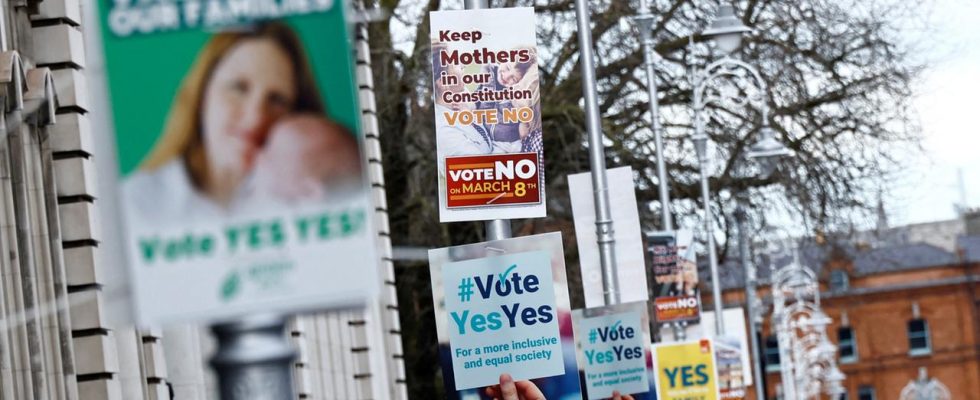In Ireland today people are voting on changing an article of the constitution. This suggests so far that the role of women is located in the household. Obsolete, many say – an expression of recognition, others think.
A good two and a half years ago, a citizens’ assembly in Ireland presented its recommendations on the topic of gender equality. Today the Irish can vote on whether the text of their constitution should be changed. In keeping with International Women’s Day, the focus is on passages that define the role of the family and women.
In a first referendum, the population can decide whether marriage should remain the heart of the family or whether other “long-lasting relationships” can also make up a family. A second referendum will address the question of whether the very traditional formulation of the role of women should be changed.
Jerry Crowley, a 60-year-old business analyst from Dublin, is pleased with today’s vote. He was a member of the citizens’ assembly that dealt with gender equality. The choice of words in the constitution is important, he says. He believes that the direct impact on the living conditions of women is small, but he believes that the wording should reflect the current state of Irish society.
“A support to the state through their domestic life”
Regarding the role of women, Article 41 of the Irish Constitution states:
The state recognizes that women, through their domestic life, are a support to the state, without which the common good cannot be achieved.
And further:
The state therefore strives to ensure that mothers are not forced by economic necessity to work while neglecting their domestic duties.
This passage should be replaced by gender-neutral wording. We would then be talking about the “care of the members of a family for one another”.
Formulation as Assignment of blame …
Louise Crowley, professor of family law at University College Cork, sees the referendum as a great opportunity. If the outcome were positive, it would be the first time that the Irish constitution would require the government to recognize that there are a range of people who can be responsible for care and nursing – not just women.
Crowley believes the text change is overdue. She sees the current formulation as an apportionment of blame. It suggests that working outside the home means neglecting responsibilities – to the detriment of family and society. Crowley, on the other hand, emphasizes that she, along with her husband and children, are proud to share responsibility for the family’s well-being.
… or as recognition?
Maria Steen has a different opinion. Steen is a conservative activist who wants to vote no in the referendum on the role of women. The trained architect and lawyer chose to stay at home as a mother and is now fighting to ensure that the wording in the constitution remains as it is.
Steen believes that Article 41 is an expression of recognition and thanks to women for what they do for their families at home. In addition, the demand becomes clear that the government supports mothers who want to stay at home with their children. Mothers shouldn’t have to work for financial reasons.
Steen acknowledges that this support for mothers hasn’t existed in the past. Now she wants to put pressure on the government: “A survey has shown that 69 percent of mothers who care for children would like to stay at home full-time if money were not an issue.” Governments have failed one after another to stand up for women in this regard. By voting no in the referendum, the Irish should now send a clear signal that they expect more.
Results over the weekend
It will be interesting to see how high the voter turnout is during the vote. Until the beginning of February, a good half of the Irish population didn’t even know what it was about. There was also still indecision among voters until the very end.
Polling stations close at 10 p.m. local time. A result will be announced over the weekend.
Imke Köhler, ARD London, tagesschau, March 7, 2024 11:30 p.m

